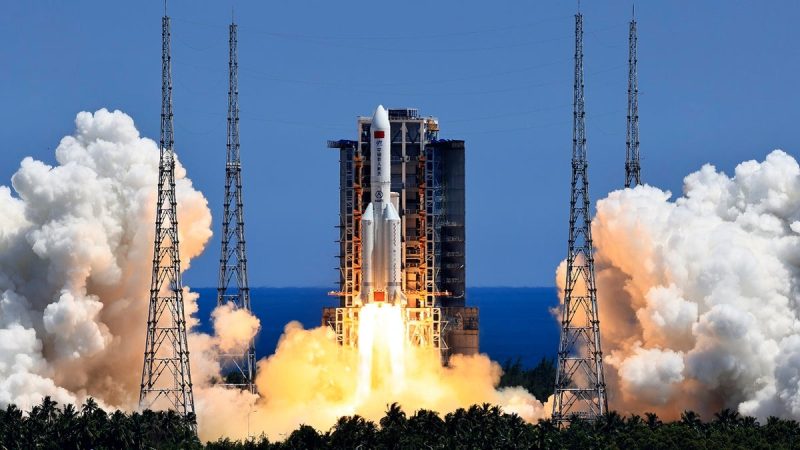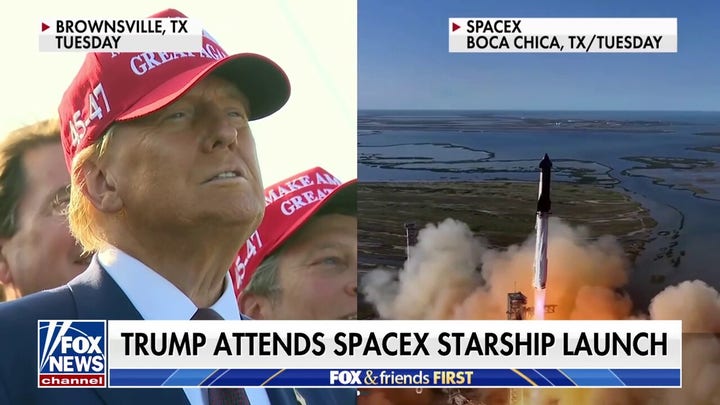
China’s desire to dominate space at the expense of the United States is no secret. The Chinese Communist Party has telegraphed its intentions, and our own intelligence community has issued glaring warnings that we would be wise to heed.
A declassified report from the Director of National Intelligence stated in 2021 that ‘China is steadily progressing toward its goal of becoming a world-class space leader, with the intent to match or exceed the United States by 2045.’
The report detailed a rapidly approaching timeframe when the CCP may achieve its goal, stating ‘China is developing innovative systems in all space technology areas, and we judge … that by 2030 China will achieve world-class status in all but a few.’
That is nothing short of a time bomb. And the clock is ticking.
The very same year the DNI report was issued, China’s orbital launches exceeded those of the United States. This was the second year in a row China outpaced the United States in orbital launches.
Like every one of China’s ambitions, the communist regime tells us what it intends to do with space dominance. In 2015, China designated space as the new warfare domain and has since been active in growing its arsenal of new technologies. One of these is a nuclear-capable hypersonic missile which the CCP demonstrated in 2021. The glide vehicle engaged in a low-orbit space flight before hitting its target within a dozen miles.
This was the latest in a series of launches that demonstrated China’s ability to threaten America in space, whether it be targeting our satellites for destruction or surveilling our own activities in orbit.
While the United States has regained the lead in orbital launches in subsequent years, complacency would be cataclysmic for our geopolitical, security and economic interests. The risk is compounded by China’s secret weapon in the space race: America’s own regulatory state.

The regulator responsible for this is the Federal Aviation Administration. For too long, FAA’s regulations and its inability or unwillingness to streamline approval processes have doused our serious initiatives to compete in space. Thankfully, Republicans in Congress are taking this seriously. We aim to address it with majorities in the House and Senate, partnered with President-elect Donald Trump in the White House who has also made this a priority.
As incoming Chairman of the House Science Space and Technology Committee Brian Babin, R-Texas, noted in a recent hearing on this very issue, ‘the national security implications posed by FAA’s regulations are very concerning.’ Babin homed in on the culprit within FAA’s regulatory regime – rules governing commercial launch and reentry known as Part 450.
Part 450 was developed to expedite the licensing process, thus speeding up commercial launches. But, Babin made clear, ‘FAA has issued six licenses under Part 450, with applications taking years to complete. Many applications for Part 450 licenses are still under review, impacting launch schedules and NASA missions.’
As the representative-elect for Florida’s 8th Congressional District, which includes America’s ‘Space Coast’ and the Kennedy Space Center, reigniting America’s competitive advantage in space will be my top priority. This is achievable through three main objectives.
It was the latest in a series of launches that demonstrated China’s ability to threaten America in space, whether it be targeting our satellites for destruction or surveilling our own activities in orbit.
First, Congress must take a scalpel to the FAA’s implementation of the Part 450 license and launch regulations for commercial space flight as Babin and the Science Space and Technology Committee recommend. This can be done legislatively by modifying Title 51 to reform Part 450 implementation.
Second, the FAA must return all remote workers to the office to improve efficiency and productivity. It must also realign job duties so more federal workers are focused on granting licenses as opposed to areas Congress never gave the FAA authority over, such as space flight participant safety.
Finally, we should sic the DOGE on the FAA. Elon Musk and Vivek Ramaswamy have clearly articulated the commonsense objectives of the Department of Government Efficiency – to eliminate red tape and unleash American innovation. DOGE along with the new aerospace rulemaking committee with outside membership called SpARC will make the necessary recommendations to Congress to secure American dominance in space and reduce the growing threat from China.
America’s regulatory regime is China’s secret weapon in the space race that could ultimately lead to our adversary winning this Cold War in the stars. But the United States will now have a Congress and a president willing and committed to addressing this threat and launching the next century of American dominance in space.
